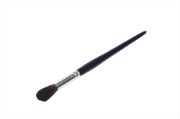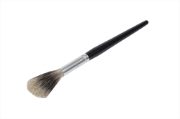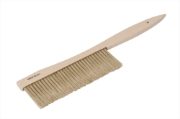Got a soft spot for brushes? but how soft?
When putting this post together we searched for a more descriptive and flexible noun for the definition of the word 'Soft'. If there is one we couldn't find it. So, here's a picture of many of our cleaning and conservation brushes ranked in order of softness, you may read the word 'soft' a few times on this page.
There are no
hard and fast rules here, it’s tricky to strike a balance between stiffness and softness (or hardness), but should give you a general idea of the range. Click on the image to navigate directly to the brush on our website.
Brushes, from ultra soft, in order (ish) - click on a brush for more information ⇩

 Our softest brush is the Siberian squirrel hair brush, 869-7000. You genuinely won't believe how soft this brush is! ideal for the most delicate of cleaning work.
Our softest brush is the Siberian squirrel hair brush, 869-7000. You genuinely won't believe how soft this brush is! ideal for the most delicate of cleaning work.
If you're on a budget, then our PEL soft white goat-hair brush is the next best (soft) thing, along with the wide handled brushes with the same soft white goat hair bristles for gentle cleaning and dusting.
Our softest Japanese brush is the Hake brush, again with soft white goat hair. The flat single row of bristles are sandwiched between two layers of unfinished wood, no metal fixings or ferrule, and available in a few widths.
For an equally soft, but slightly stiffer brush, the Tsukemawashi is thinner at around 5mm, Noribake is around 11mm, both are commonly used for pasting.
Very Soft....
Moving on - the density and length of the goat hair bristles on the mop head brushes make them ever so slightly more stiff to touch than the Japanese brushes although the bristles are as soft.
We’re not quite out of the goat hair just yet, but the next brushes, our Anti-Static brushes are a change with a mix of natural and synthetic bristles. Still really, really soft, and safe for use on delicate negatives, film and photographs. They remove static charge, preventing dust from being attracted after cleaning.
 Soft... Next up are the real badger hair brushes, retaining their shape when wet and with a unique flicking action when dry, all due to the hollow construction of the hair - a really good cleaning brush. Beware of cheap imitations, which can be dyed to look the part, but are not real badger hair.
Soft... Next up are the real badger hair brushes, retaining their shape when wet and with a unique flicking action when dry, all due to the hollow construction of the hair - a really good cleaning brush. Beware of cheap imitations, which can be dyed to look the part, but are not real badger hair.
The small circular goat hair brush has a number of dense and 15mm short bristles on the 40mm head, the length makes the brush stiffer than other goat hair brushes.
The next Japanese brush on the scale is the Mizubake water brush made from natural deer hair, excellent for moistening as it retains water in the 30mm dense bristles, requiring only minimal refreshing when working.
A final appearance for goat hair, our small stippler/dabber brushes are stiffer due to the density and short length of the bristles, 6mm or 9mm.
Gentle....
The flat angled crevice brush is made from white hog hair ideal for gentle cleaning and dusting objects. The angled copper ferrule allows you to work on otherwise inaccessible spaces, or at a more comfortable angle.
The wide handled brush is horse hair, stiffer than badger hair and slightly more coarse.
The other brushes in the gentle group all feature soft white hog hair, with the differentiation being drawn by bristle length and density.
 Our wide dusting brush is very gentle due to the long bristle length. The shorter bristles on the smaller brushes (>circular, long handled) offer a firm brush-head for more stubborn cleaning of dirt and dust from frames and more resilient objects.
Our wide dusting brush is very gentle due to the long bristle length. The shorter bristles on the smaller brushes (>circular, long handled) offer a firm brush-head for more stubborn cleaning of dirt and dust from frames and more resilient objects.
Hog hair is now the order of the day in the firm category with long handled, wide handled, and stippler versions available.
The Nazebake hard smoothing brush is the final Japanese brush, with 70mm long hemp bristles, it can be used for pressing and smoothing.
Our hardest brushes feature stiff black hog hair or brass bristles, indeed although the natural hair is undoubtedly softer, the brass is surprisingly soft. These are strong cleaning brushes for harder, resilient surfaces, such as stone and are available with a long handle, and smaller toothbrush sizes.
To view the full range of brushes click here